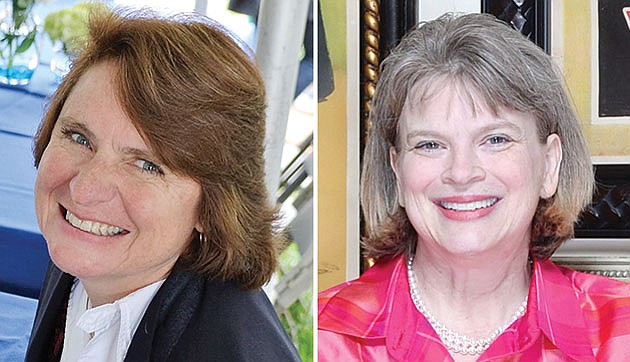Talk about a long-term growth opportunity: Lisa Boyce runs a business where customer demand is driven by an increase, or at least a status quo, in the amount of government bureaucracy in health care.
Specifically, the company, Marco Island-based FairCode Associates LLC, has a niche in providing a range of audit-based work for hospitals that seek help in getting accurate reimbursement for services. “We are a fast cash solution for hospitals that are struggling,” says Boyce, FairCode CEO. “And a solution for any hospital looking to streamline its processes.”
There are some serious dollars in the amount of missed or incorrect payments, which stem from a variety of factors, says FairCode co-founder Dr. Tracey Goessel. FairCode, says Goessel, has recovered around $333 million for hospitals since she and Boyce launched the business in 2001. In that time, the company — mostly doctors paid on a contractor basis — has reviewed more than one million cases for clients. The average gross return on every dollar a client pays in fees is $4, say company officials.
FairCode has spiked in growth the past few years. Annual revenue is up 47.5%, from $5.9 million in 2015 to $8.7 million last year. The company has some 85 doctors who review cases. “We've created a really nice business,” says Goessel, a former ER doctor who is now chairwoman of the company.
Goessel and Boyce, a University of Florida graduate with a degree in nursing, founded FairCode in 2001.
The doctors who work for FairCode on a contract basis form the crux of the business. They look over a hospital's paperwork to find faults, both in what the government says it can or will pay and what hospital coding employees filled out.
The doctor-contractors are based nationwide and come from all disciplines with one common denominator — they aren't practicing medicine full time anymore. They could be too old to work but too young to retire, or in some cases, a medical condition precludes them from working. One FairCode contracted physician, for example, has multiple sclerosis. “There's a huge pool of doctors out there,” says Goessel. “We have many good doctors who can no longer work in the operating room.”
FairCode contractors review charts, in compliance with health care privacy laws, after a hospital coder assigns it a DRG — federal code for a Diagnosis-Related Group. A DRG is a data system that classifies any inpatient hospital stay into a particular group for Medicare reimbursement payment. All told, with subdivisions, there are at least 500 groups into which a DRG can be placed. Each group has a different payment schedule.
Goessel calls the federal hospital reimbursement system Byzantine. “Coding systems don't always make the most common sense...but government wrote them,” quips Goessel.
A FairCode physician reviews the chart after the hospital coder has assigned a DRG — but before the government is billed. In many cases, Goessel says, the doctor validates what the hospital coder filled out. In other cases, a FairCode doctor will catch some incorrect nuances in the coding, where the hospital could be on the wrong side of the billing procedures. The hospital can then redo the paperwork before submitting to the government.
One of FairCode's top selling points: Its doctors work in real time, and give instant feedback to coding employees and managers. The key to working in real time, says Goessel, is FairCode has created and enhanced its own proprietary software code and systems to read codes and billing documents.
Another of the company's strong points, says Goessel, is it spends a considerable amount of time training its contracted physicians on how to work with hospital coding employees. The relationship can be perilous, considering a paid consultant is looking over a hospital employee's work for money-costing errors. So Goessel has worked on the bedside manner side of the business, driving home it's a team approach.
“It takes a special person to work for FairCode. They have to be both smart — and nice. Gentle, collaborative and willing to teach and work with the coders,” says Goessel. “That isn't the profile of every doctor.”






